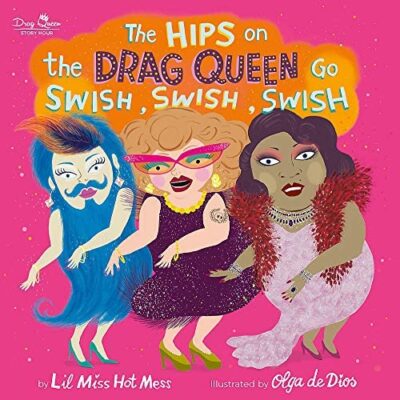There was much praise from the center-right and parent’s groups when Florida passed a law to protect children from drag shows. Gov. DeSantis signed it, but a court just tossed it out. For all its good intentions, it was poorly written and contradicted existing law.
Eugene Volokh has relevant excerpts from the Court’s opinion here, and while not difficult to wade through, don’t feel bad if you find your un-lawyer-like mind a bit muddled.
Defendants argue that the Act’s language and restrictions track those upheld in Ginsberg v. New York (1968) [which did ban the distribution of “obscene-as-to-minors” material, such as books and magazines, to minors -EV]. There are several significant distinctions, however, between the narrowly tailored statute in Ginsberg and Fla. Stat. § 827.11. First, the Supreme Court in Ginsberg “relied not only on the State’s independent interest in the well-being of its youth, but also on the consistent recognition of the principle that ‘the parents’ claim to authority in their own household to direct the rearing of their children is basic in the structure of our society.'” The prohibition against the sale to minors of material considered obscene for their age in the statute at issue in Ginsberg “d[id] not bar parents who so desire[d] from purchasing magazines for their children.”
As we’ve often stated, especially in support of the argument that limiting access to age-inappropriate material is not “book banning,” parents have rights affirmed in law and statute. One of them is that they have authority in their household, and the material in question is widely available outside a school library.
Physical libraries also have limited space which requires them to decide what books will be removed so others may replace them. This is not, by even the most strained definition, banning books.
When confronted with removing age-inappropriate material from any collection, the question should be, do you still have every book that has ever sat on a shelf in this library? To say yes would be a lie, so the next question is, why did you ban those books?
They didn’t. But I digress.
Adult Drag shows are burlesque. Transvestities engaged in sexualized performance with implicit or explicit material most of us would call “adult.” If that’s your thing, have it. But in its race to protect kids, Florida lawmakers ran afoul of matters in existing Florida law, tripping over precedent on their way.
The most blatant is Florida’s Parental Rights Law. As written, the new law would make protected actions illegal.
“All parental rights are reserved to the parent of a minor child in this state…including…[t]he right to direct the upbringing and the moral or religious training of his or her minor child.” Id. § 1014.04(1)(b)
According to the Court, the Florida Drag Show law is both broad and unclear, with no carve out that would comport with a parent’s rights under Florida Law. A parent who consented to the content has a moral and religious right the Drag Show law would abrogate.
In other words, Florida needs to explain better its compelling interest in protecting children from mature material deemed harmful. It needs to clarify the definitions of terms like lewd, exposure, child, and prosthetic, to name a few, at which point it could take another bite at this apple. But the Court has declared the original law unconstitutional and unenforceable.
Any state looking at Florida as a model for their version should look more closely and choose its words wisely.





